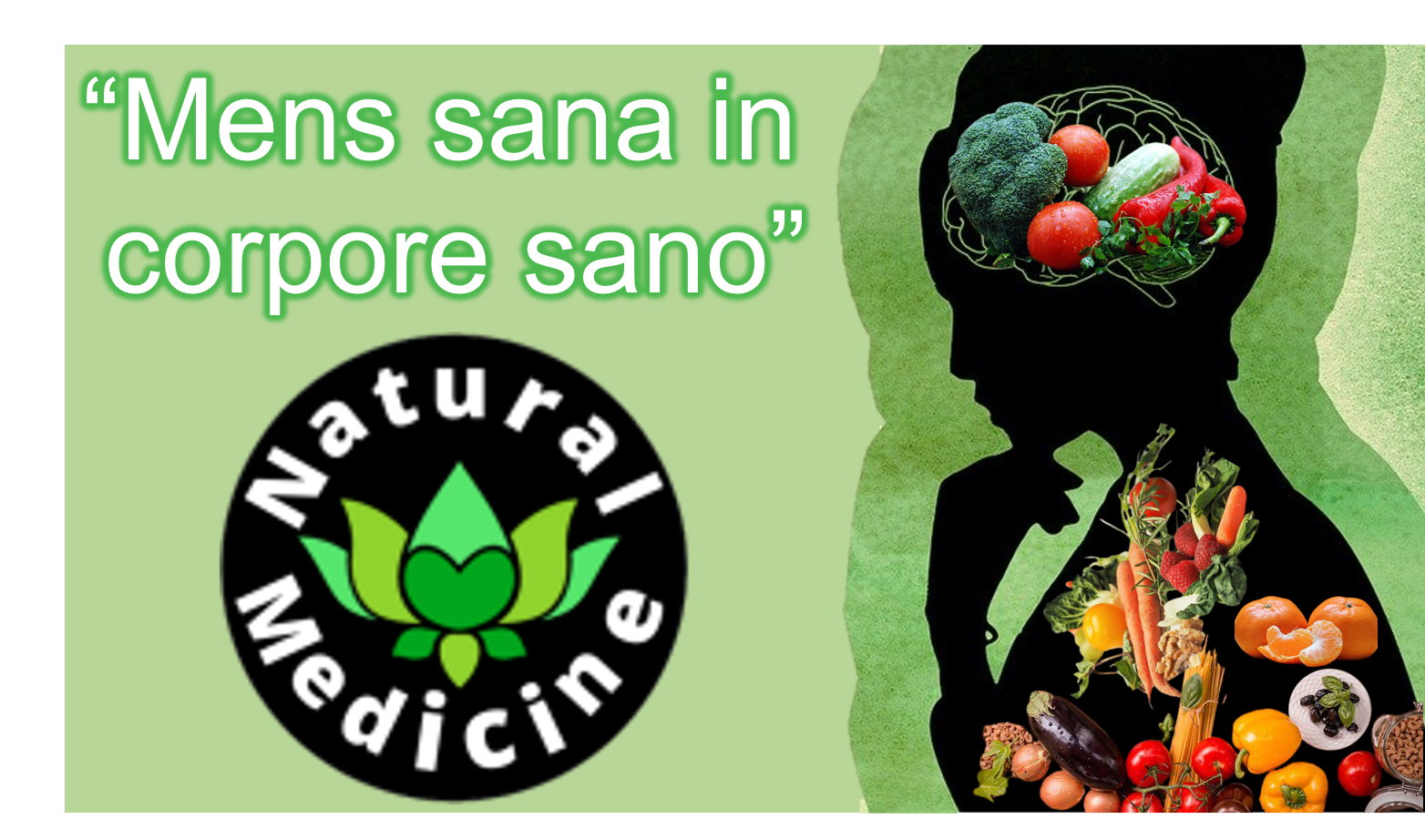

Today I will share with you some keys to keep your mind healthy and therefore your body as well. The principle to achieve this is in our diet, eating foods that are beneficial for your brain is the basis to achieve it. >"Mens sana in corpore sano". Surely you have heard this expression sometime in your life. It is a Latin quote that comes from the Satires of Juvenal (Roman poet s. I). And how to achieve a healthy mind in a healthy body? Well, basically by having healthy living habits, that is, eating a healthy diet, with a balanced diet and doing some physical activity. All these tips should be taken with due caution in case there are previous pathologies when starting the intake of each food, consulting with your doctor. It is scientifically proven that we can improve the health and functions of the brain through a good diet. We know that the brain is the most complex organ of our body and that it is important to have a good diet rich in vitamins and minerals to enjoy a good memory and concentration. We must include in our diet foods rich in carbohydrates, with a little protein, which will help us to relax and sleep better.
Hoy te compartiré algunas claves para que mantengas tu mente sana y por consiguiente tu cuerpo también. El principio para lograrlo está en nuestra alimentación, ingerir alimentos que sean beneficiosos para tu cerebro es la base para lograrlo. >“Mens sana in corpore sano” Seguro que habrás oído esta expresión alguna vez en tu vida. Se trata de una cita latina que proviene de las Sátiras de Juvenal (poeta romano s. I). ¿Y cómo lograr tener una mente sana en un cuerpo sano? Pues básicamente teniendo unos hábitos de vida saludables, es decir, llevar una alimentación sana, con una dieta equilibrada y hacer algo de actividad física. Todos estos consejos deben tomarse con la debida prudencia en caso de que existan patologías previas al iniciar la ingesta de cada alimento, consultándolo con su médico. Está probado científicamente, que podemos mejorar la salud y las funciones del cerebro a través de una buena alimentación. Sabemos que el cerebro es el órgano más complejo de nuestro organismo y que es importante llevar una buena alimentación rica en vitaminas y minerales para gozar de una buena memoria y concentración. Hay que incluir en nuestra dieta alimentos ricos en carbohidratos, con un poco de proteína, que ayudarán a relajarse y a dormir mejor.
---

One of the main vitamins that we must take care that we never lack is vitamin C, which in addition to strengthening our immune system, prevents cognitive impairment. Its antioxidant properties prevent premature degradation of neuron receptors. Taking between 60 and 100 mg (a kiwi or an orange a day, we cover the recommended daily amount). You can also take other fruits such as melon, watermelon, tangerines, grapefruit, mango, papaya, pineapple, strawberries, blackberries, raspberries and blueberries. Finally some vegetables such as kale (or cabbage), broccoli and Brussels sprouts, these are very rich in vitamin C. Another vitamin that is important that we do not lack so that our brain is protected and active, is thiamine, vitamin B1. The recommended dose is between 1,100 and 1,300 mcg daily. We can find it naturally in: yeast, legumes, whole grains, oats, wheat, corn, nuts, eggs, viscera (liver, heart, kidney), pork, beef, potatoes, enriched rice, complete rice, sesame seeds and enriched white flour. It is important to take into account that alcohol consumption interferes with the absorption of this nutrient; therefore, moderation is recommended. Another protector of our brain is omega-3 essential fatty acids, which are essential for the connections between brain cells, as well as the good condition of neuronal membranes. Recommended foods rich in omega-3 essential fatty acids are fish: salmon, river trout, mackerel, herring, sardines, tuna and shellfish. Also in vegetables such as flax and chia seeds or walnuts. The recommended daily amount is 1.5 g per day. Calcium is also essential for the proper functioning of the brain, as it is involved in the transmission of signals between neurons. In fact, taking too little calcium is detrimental to brain function. However, it should be borne in mind that the accumulation of calcium inside neurons causes their degeneration and death. The way to avoid this is to have adequate levels of the transporter proteins that take calcium out of the cells. Therefore, vitamin C controls free radicals by adjusting calcium levels. The recommended daily amount of calcium is between 900 and 1000 mg daily, and we can find it in milk or in tofu, chickpeas, almonds, sesame, dried figs, white beans, and vegetables such as broccoli, cauliflower, cabbage, watercress and radishes.
Una de las principales vitaminas que debemos cuidar que nunca nos falte es la vitamina C, que además de fortalecer nuestro sistema inmunitario, previene el deterioro cognitivo. Sus propiedades antioxidantes evitan la degradación prematura de los receptores de las neuronas. Tomando entre 60 y 100 mg (un Kiwi o una naranja al día, cubrimos la cantidad diaria recomendada). También puedes tomar otras frutas como el melón, la sandía, mandarinas, pomelos, mango, papaya, piña, fresas, moras, frambuesas y arándanos. Por último algunas verduras como la col rizada (o repollo), el brócoli y la col de Bruselas, estas son muy ricas en vitamina C. Otra vitamina que es importante que no nos falte para que nuestro cerebro esté protegido y activo, es la tiamina, vitamina B1. La dosis recomendada es entre 1.100 y 1.300 mcg diarios. La podemos encontrar de forma natural en: levaduras, legumbres, cereales integrales, avena, trigo, maíz, frutos secos, huevos, vísceras (hígado, corazón, riñón), carnes de cerdo, carnes de vacuno, patatas, arroz enriquecido, arroz completo, semillas de ajonjolí (sésamo) y harina blanca enriquecida. Importante y a tener en cuenta, es que el consumo de alcohol interfiere con la absorción de este nutriente; por lo que se recomienda moderación. Otro protector de nuestro cerebro son los ácidos grasos esenciales omega-3, que son fundamentales para las conexiones entre las células cerebrales, así como el buen estado de las membranas neuronales. Los alimentos recomendados ricos en ácidos grasos esenciales omega-3, son el pescado: salmón, trucha de río, caballa, arenque, sardinas, atún y mariscos. También en vegetales como las semillas de lino y de chía o las nueces. La cantidad diaria recomendada a tomar es 1,5 g diarios. El calcio también es esencial para el buen funcionamiento del cerebro, ya que participa en la transmisión de las señales entre neuronas. De hecho, tomar poco calcio perjudica la función cerebral. Ahora bien, hay que tener en cuenta que la acumulación de calcio dentro de las neuronas provoca su degeneración y muerte. La forma de evitarlo es que se den los niveles adecuado de las proteínas transportadoras que sacan el calcio de las células. Por ello la vitamina C, controla los radicales libres ajustando los niveles de calcio. La cantidad diaria recomendada de calcio es entre 900 y 1000 mg diarios, y podemos encontrarlo en la leche o bien en el tofu, garbanzos, almendras, sésamo, higos secos, alubias blancas, y en vegetales como brócoli, coliflor, repollo, berros y rábanos.
---

Another important mineral is zinc, which improves memory and prevents epileptic seizures. That's right, this mineral is essential for the regeneration of cellular tissues and for the synthesis of DNA, it is also fundamental in the regulation of communication between neurons and in the fixation of memories. We can find it in pork, dark chocolate, brown rice, eggs, oysters, pumpkin seeds, shiitake mushrooms, peas, or bean sprouts. The recommended daily amount is 15 mg per day. We also have magnesium, a mineral capable of reversing brain aging and improving long-term memory. It also relieves depression and anxiety. We can find it in almonds, cashews, spinach, whole wheat, quinoa, avocado, tofu, black beans. The recommended daily amount is between 310 to 420 mg. The practice of some physical activity is also essential. The World Health Organization (WHO) defines it as "any bodily movement produced by skeletal muscles, with consequent energy consumption. This includes activities performed while working, playing and traveling, household chores and recreational activities." In addition to this, it invites us to do some exercise, this being a complement to physical activity and which is beneficial to health, helping our brain to be well oxygenated. On the other hand, drinking 1.5 to 2 liters of water a day is vital to keep the brain well hydrated. In short, include these foods in your diet and you will enjoy a healthy mind in a healthy body.
Otro mineral importante es el zinc, este mejora la memoria y previene los ataques epilépticos. Así es, este mineral es esencial para la regeneración de los tejidos celulares y para la síntesis del ADN, además es fundamental en la regulación de la comunicación entre neuronas y en la fijación de recuerdos. Podemos encontrarlo entre la carne de cerdo, chocolate negro, arroz integral, huevos, ostras, semillas de calabaza, setas shiitake, guisantes, o los germinados de soja. La cantidad diaria recomendada es de 15 mg diarios. Así mismo tenemos el magnesio, mineral capaz de revertir el envejecimiento del cerebro y mejorar la memoria a largo plazo. Además, alivia la depresión y la ansiedad. Podemos encontrarlo en almendras, anacardos, espinacas, trigo integral, quinoa, aguacate, tofu, alubias negras. La cantidad diaria recomendada es entre 310 a 420 mg. La práctica de alguna actividad física también es fundamental. La Organización Mundial de la Salud (OMS), la define como “cualquier movimiento corporal producido por los músculos esqueléticos, con el consiguiente consumo de energía. Ello incluye las actividades realizadas al trabajar, jugar y viajar, las tareas domésticas y las actividades recreativas.” Además de esto, nos invita a realizar algo de ejercicio, siendo éste un complemento de la actividad física y que es beneficiosa para la salud, ayudando a que nuestro cerebro esté bien oxigenado. Por otra parte, beber de 1,5 a 2 litros de agua al día es vital para mantener el cerebro bien hidratado. En pocas palabras, incluye en tu dieta estos alimentos y gozarás de una mente sana en un cuerpo sano.
SOURCES

Originally posted here: https://hive.blog/hive-120078/@rafabvr/eng-spn-how-to-have-a-healthy-mind-and-a-healthy-body
No comments:
Post a Comment